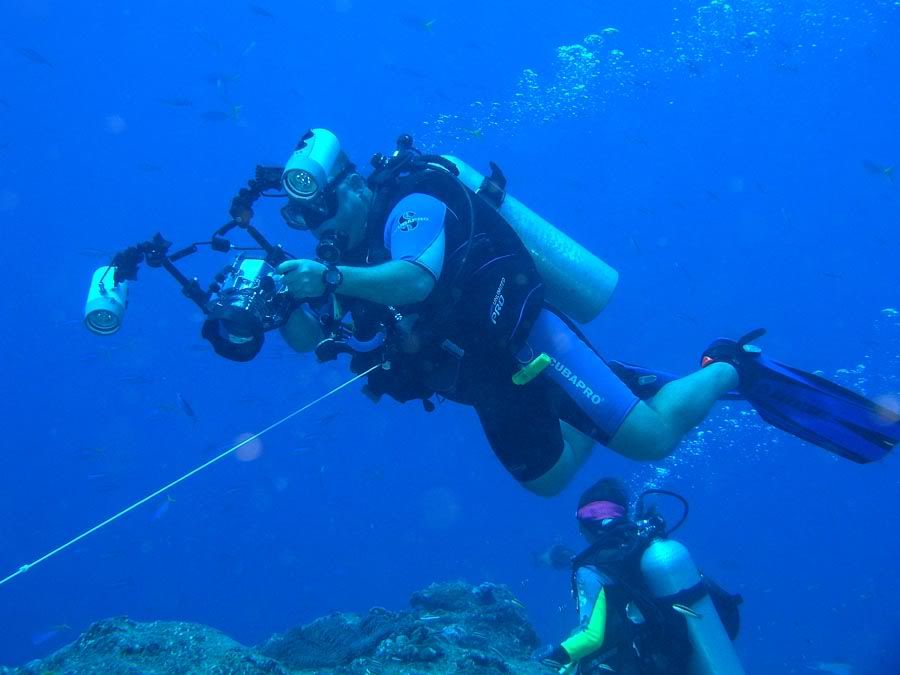I am neither a DM or an Instructor, and I will never be one. I cant comment on what they did right or wrong. She died, which is tragic, and I wasnt there, so I cant comment on that.
When I read the original post about the current and the clipping, my first thought was "not this boy". No way. You guys feel comfortable doing that? Awesome. I dont. And if I was the DM I wouldnt let anyone do that unless I was DAM sure that they could handle it.
I really do think that fundementally people are stoopid. I read lots of accident reports (NTSB and the like) and they are VERY instructive. Depressing, but instructive. So often accidents can be avoided by using commen sense ahead of time. People are just way too sure that everything will be fine, and when the slightest thing goes wrong....
I hear all the time about the great times that people have diving on vacation;
with unknown, rented gear,
in unknown waters,
with unknown boat operators,
with unknown DM's.
uh, yeah, no way. Yup, I will miss some of the best diving in the world due in large part to what some people would call paranioa. But EVERY time I am diving I am comfortable, I feel safe and I am not worried.
Oh, and I WILL dive the good spots, it will just cost me more to get my own equipment there.
When I read the original post about the current and the clipping, my first thought was "not this boy". No way. You guys feel comfortable doing that? Awesome. I dont. And if I was the DM I wouldnt let anyone do that unless I was DAM sure that they could handle it.
I really do think that fundementally people are stoopid. I read lots of accident reports (NTSB and the like) and they are VERY instructive. Depressing, but instructive. So often accidents can be avoided by using commen sense ahead of time. People are just way too sure that everything will be fine, and when the slightest thing goes wrong....
I hear all the time about the great times that people have diving on vacation;
with unknown, rented gear,
in unknown waters,
with unknown boat operators,
with unknown DM's.
uh, yeah, no way. Yup, I will miss some of the best diving in the world due in large part to what some people would call paranioa. But EVERY time I am diving I am comfortable, I feel safe and I am not worried.
Oh, and I WILL dive the good spots, it will just cost me more to get my own equipment there.





